
Sharnews Editor Released:
Hiva Fouladi, the editor-in-chief of local Saqqez news site, was realised on bail on October 23.
Sharnews reported that police and “other government institutions” had made it increasingly difficult for the website to deliver news to the area, imposing restrictions on its publishing operations and lodging complaints against it. Fouladi was arrested on October 9 for publishing an article on public outcry against police conduct.
Prior to Fouladi’s release, the news outlet appealed to authorities for his release, while at the same time pledging its commitment to bring vital, independent news to the people of Saqquez in northwest Iran. It said it would not change its editorial stance, which was often critical of local authorities. Fouladi’s bail was set at 250,000,000 tomans (US$83,333).
Land Mine Kills Child, Injures Others, in Hirmand:
A land mine exploded during a wedding in Hirmand County in Sistan and Baluchistan province on October 8, killing a child and injuring six others, one of whom remains in a critical condition.
Dr. Raf’at, director of medical emergency at Zabol Medical School, said some of the victims were brought into the hospital, but that they had not been contacted directly. “When paramedics were dispatched to the area, officials barred them from entering the scene of the accident,” he said. “Four of the injured were picked up on the road, and two more were brought in by their relatives. We do not know how many people were injured.”
Dr. Khosrawi, the hospital’s manager, said one of the victims, who had injuries in his thigh and throat, received emergency surgery. “Fortunately, with our colleagues’ efforts in the operating room, this person was revived and his general health is now satisfactory.”
According to Mohammad Piri, the governor of Hirmand County, preliminary investigations suggest that the land mine had been hidden under the floor of a kitchen and probably exploded after being exposed to high temperatures.
A security official was quick to dispel rumors that the explosion was set off by a suicide bomber, warning that people engaged in spreading rumors would be “dealt with in due course.” He said that because of the province’s proximity to Afghanistan and Pakistan, it was reasonable to assume that some weapons and munitions had been brought across the border in recent years.
Six Arrested for Online Activity in Isfahan:
The Intelligence Unit of the Revolutionary Guards (IURG) in Isfahan reported on October 20 that it had arrested six people for “immoral” activity online, claiming it had successfully “destroyed the biggest anti-moral group on the internet.” The Special Interrogator for Computer Crimes accused the six detainees, all of whom were men, of “spreading rumors and lies through mobile phone networks” and “creating virtual groups to deceive.”
The IURG also reported that the accused had confessed to their crimes on local television, admitting that they had been active on social networks including Viber, Facebook and WhatsApp. One confessed to having created a “fake profile” in order to share “immoral posts.” During the broadcast, IURG also warned the public that it was regularly monitoring online activity. Sahebnews, a website close to the Isfahan branch of the Revolutionary Guards, which reported the arrests of members of “an organized anti-moral group,” said that anti-revolution media had been actively portraying Isfahan as unsafe and that “24/7 monitoring of the internet” was necessary. The website also alleged that the accused "were in contact with foreign intelligence services.”
The broadcast came four days after the news that several women had been the victims of acid attacks in the city, attracting widespread media attention and leading some commentators to point the finger at hardliners, who had called for morality to be upheld and punishment for women wearing “bad hejab.”

Underground Music in Qom Ignites Political Battle:
Underground music is thriving in the holy city of Qom, according to a high-ranking official from Iran’s Ministry of Culture and Islamic Guidance.
Speaking at a visual arts festival on October 9, Ali Moradkhani said that more illegal music was produced in Qom than anywhere else in the country, warning that this could jeopardise the city’s image.
Hassan Ghaffari, a Qom Seminary scholar, responded angrily two days later, saying that the official, with his “Tehran-minded thoughts,” was in no position to comment on Qom.
“Mr. Moradkhani did not give a definition of underground music,” he said. Ignoring Moradkhani’s point about underground music’s prevalence in the city, Ghaffari said it was much more widespread in Tehran.
“What has he done for art and culture in Qom? What have they done in the last year and a half since they took charge of the culture?”
Ghaffari’s criticisms reflect a wider battle between reformist and conservative politicians across the country: for hardliners, President Rouhani’s administration — of which Moradkhani is a part, running the province’s security council — is directly responsible for any signs of immorality in recent months, and for any damage to the holy city’s image as a center for religious teaching and practice.
Qom Seminary is the largest in Iran, hosting more than 4,0000 students and scholars from over 80 countries around the world.
By law, musicians must gain the approval of the ministry before distributing their work to or performing for the public. Those who are unsuccessful — as well as musicians who are unwilling to subscribe to official vetting procedures — often work illegally, making up Iran’s underground music industry.
“One of the problems is the lack of religious people in the arts,” Moradkhani said, calling for seminary students to become more involved in the arts to boost the amount of “noble and original work” produced in line with Islamic traditions and beliefs. Moradkhami also complained that, of the 1400 students that study theatre each year, most of them do not uphold the values of the Islamic Republic.
Religious scholar Ghaffari saw the debate over underground music as a chance not only to criticize the current president and his Minister of Culture and Islamic Guidance, Ali Jannati, but also to lash out at the reformist government under Mohammad Khatami (1997-2005). “The advisor in women’s affairs used to define happiness as going to cultural centers, roaming the streets and indecency,” he said. “She labeled women in Qom as depressed.” Now, he said, the region’s culture minister was trying to “normalize indecency in Qom.”
In recent months hardliners have stepped up efforts to protect what they see as the country’s most sacred values; Moradkhani’s implication that Qom is anything other than immune to the tide of indecency associated with Tehran represents a new battle.
visit the accountability section
In this section of Iran Wire, you can contact the officials and launch your campaign for various problems







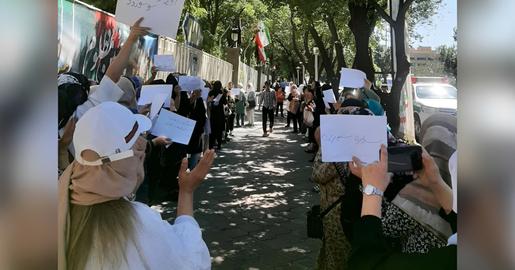



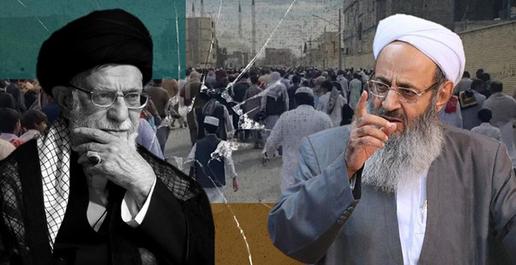
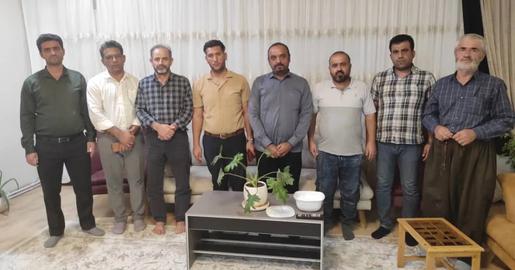
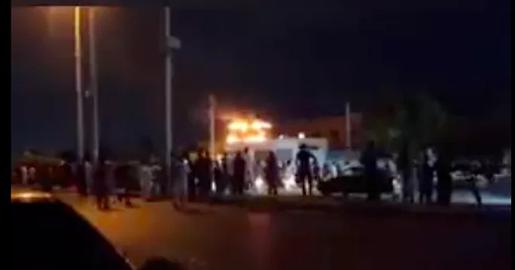
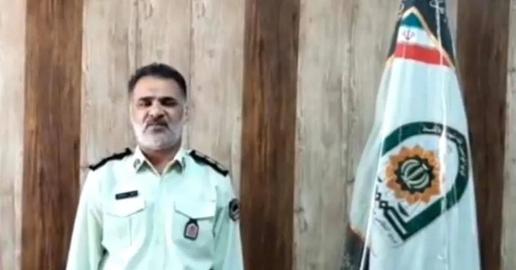






comments